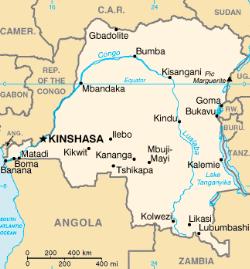In the late 1990s and early 2000s, a curious export phenomenon occurred in the countries of Rwanda, Uganda and Burundi. In spite of the fact that none of these countries had major domestic mining operations, their exports of copper, gold, diamonds and coltan jumped drastically. Not coincidentally, these were the exact same minerals found in abundance in the neighboring Democratic Republic of the Congo (DRC), and the jump in mineral exports coincided perfectly with the invasion of DRC by these three countries. While each country justified its invasion based on security concerns, the United Nations found that the battlefields were most commonly centered around areas that held large stocks of valuable minerals. In a 2002 report, the U.N. alleged that many foreign mining companies, eager to exploit the lack of a strong central government in Kinshasa and avoid paying fair market value and taxes on the minerals they extracted, signed contracts with commanders from the invading countries as well as with then-President Laurent Kabila, who was struggling to cling to power in the face of the international onslaught. These contracts almost universally favored the mining companies. "In terms of value to the country, about 60 to 80 percent of the contracts had language that allowed the companies to avoid an obligation to actually ensure that it does what it says it will do," said Peter Rosenblum, law professor at Columbia University and an expert on DRC mining contracts. The contracts, he said, often undervalued the worth of the minerals being taken from the country in order to avoid paying taxes on the wealth that was extracted.
D.R. Congo Reviews Mining Contracts Signed During Resource-Fueled War

